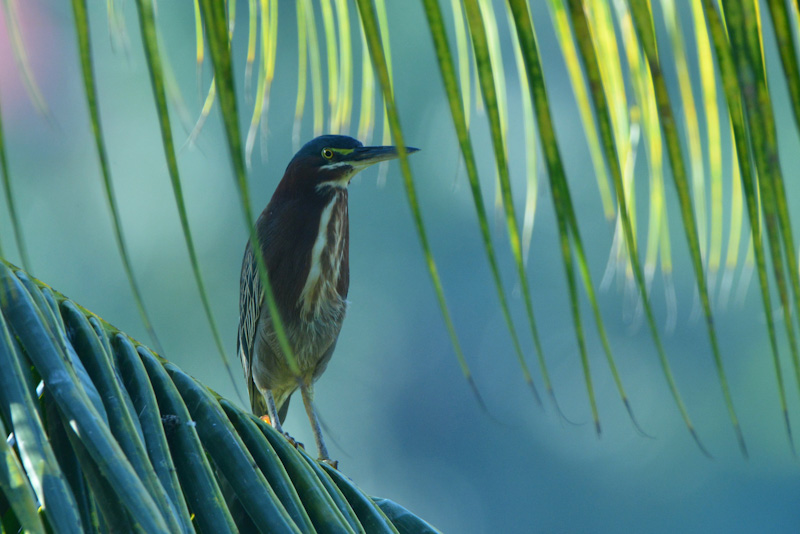
Photo and Commentary ©2025 by Robert Howson
Tuesday, April 1, 2025
“Palm fronds do not a prison make” is more than figuratively true, for this Green Heron is free to take off whenever it pleases. A visual image of bars may be brought to mind by the vertical lines of leaf and shadow, but such restriction would only be in the mind of the beholder.
Nevertheless, that’s the understanding Richard Lovelace sought to convey in the first lines of the final stanza of his classic To Althea, from Prison written in 1642.
Stone walls do not a prison make,
Nor iron bars a cage: . . . .
Religious liberty and freedom of speech were in limited supply in merry old England at that time. Remember, Lovelace was born just two years before the Pilgrims set out for American shores for that very reason. He wrote these lines while imprisoned as a result of his petition to Parliament; something to which they took exception. At stake was the role of the church in government, and Lovelace positioned himself strongly against the Bishops Exclusion Bill, a bill which removed the Anglican Bishops from a standing of temporal control and influence.
While we may not agree with his stance on Separation of Church and State, we can certainly relate to his belief that simply following the government’s demands does not make an individual free, nor does being imprisoned behind bars limit one’s freedom to think and reason as his own conscience demands.
